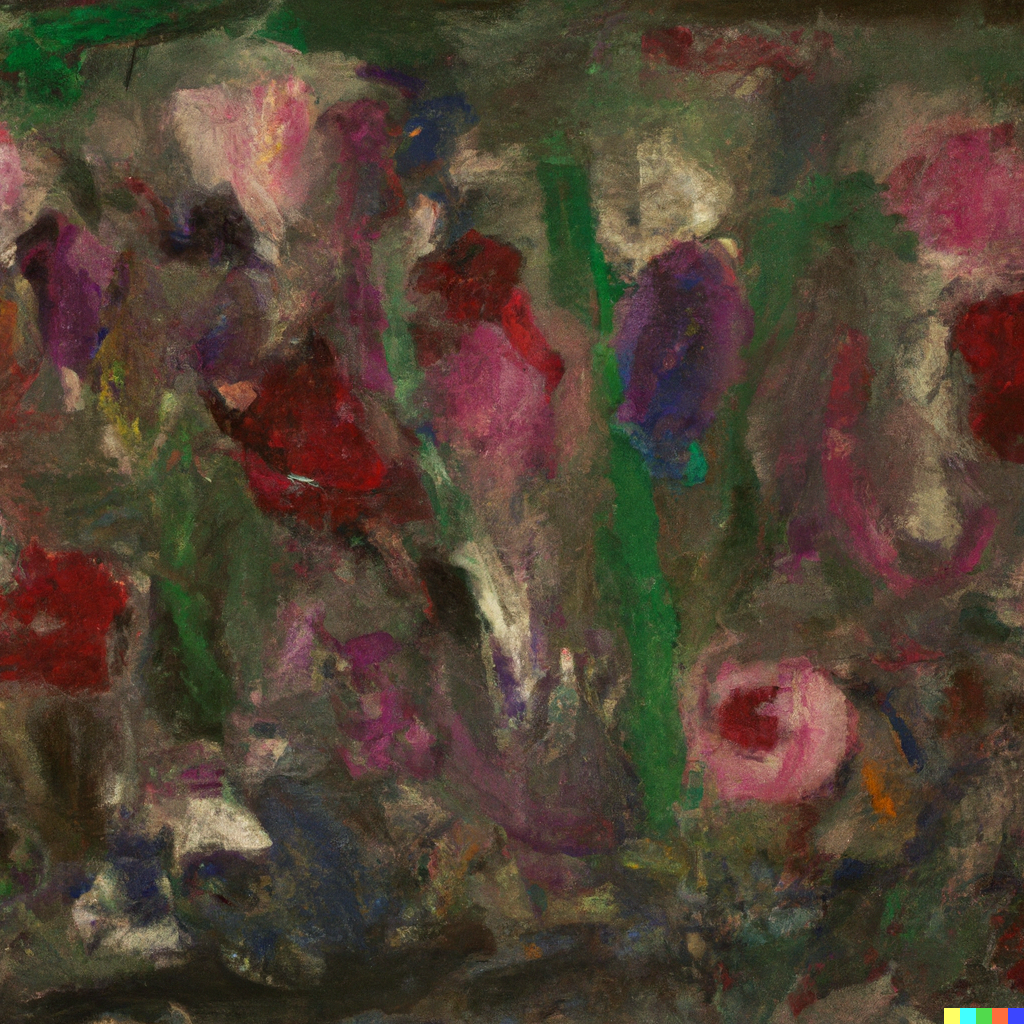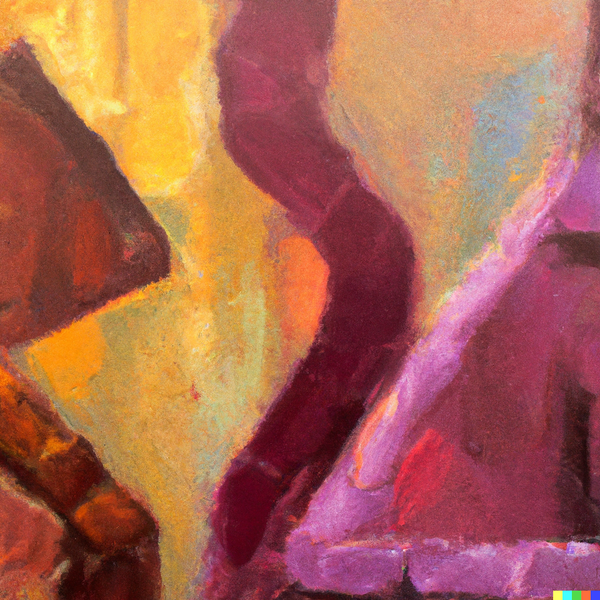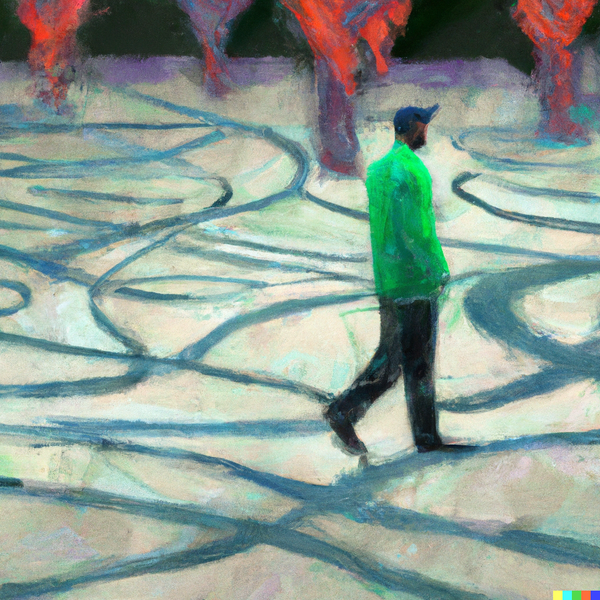dirty pretty things (2002)

Stephen Frears’ film Dirty Pretty Things (2002) portrays the austerities in the lives of both legal and illegal UK immigrants. Frears’ foreign-born characters reveal how Britain’s rigid immigration system neglects the needs of most non-European immigrants, which in turn handicaps their pursuit of British citizenship. Among several reasons, the British government adopted these strict procedures to attenuate illegal immigration (Ruhs & Anderson, 2006) and to “protect” their labour market from immigrants who supposedly occupy “British roles” (Anderson, 2010). Yet immigration statistics show no concrete evidence of immigrants robbing British-born citizens of employment opportunities (Wadsworth, 2017). In fact, foreign-born characters in Dirty Pretty Things have low-paying jobs like cab driving and hotel housekeeping (jobs that UK locals would not occupy anyway). Stories of Turkish asylum-seeker Senay, Nigerian-born and undocumented Okwe, and Chinese “certified refugee” Guo-Yi expose how British immigration involves numerous procedures, most of which are complex and unnecessary (Jennings, 2009). Complicated border controls impede immigrants’ pursuit of work that they are qualified for and instead push them towards low-paying jobs.
These cheap labour markets contain exploitative and outlawed conditions (Burnett & Chebe, 2010) which Frears depicts through the sexual abuse that Senay experiences, Okwe’s blackmail into facilitating the organ trade, and Guo Yi’s illicit supply of medicine to Okwe. Like many immigrants, their circumstances force them to develop “tactics” that help them survive in London (Evans & Wills, 2009), yet those strategies create the aforementioned consequences. Therefore, by conceptualising the various manoeuvres that Frears’ immigrant characters use to alleviate the implications of their immigration status, this essay explores their portrayal as evocative symbols of the UK state’s negligence towards immigrants from non-European countries.
While pursuing asylum or citizenship in Britain, most immigrants withstand bureaucratic documentation processes (Jennings, 2009), illiberal access to healthcare (Poduval et al., 2015), and hiring discrimination in the job market (Larsen & Di Stasio, 2021), just to name a few challenges. However, Frears depicts in Senay’s storyline that these challenges and their aftermaths are amplified among female immigrants. To gain a new passport, Okwe’s manager, Señor Juan, only demands that Okwe employ his surgical skills, but to Senay, Juan demands her virginity and her kidney. Senay’s sexual purity is quintessential in her observance of Islamic law which condemns pre-marital sex. Losing her virginity to Juan, therefore, taints Senay’s religious pursuits and puts her at risk of pregnancy and sexually transmitted diseases. In addition to what Senay confronts, Yuen(2008) records acculturation stress among female Chinese immigrants, Higginbottom et al. (2020) report absence of formal maternal care for asylum-seeking African women, and Anitha (2008) documents negligence towards South Asian women enduring domestic abuse. This open inattention of immigrant women increases their vulnerability to graver crimes like sex trafficking and rape (FitzGerald, 2016), which further endanger their lives. Disappointingly, Britain has expended very little effort on increasing social protection among its female immigrant population. Victims of this “willful negligence” as Wilkinson et al. (2012) call it, bring to light the roots of the negligence in the first place, that is, sentiments grounded in racism (De Noronha, 2019), islamophobia (Poynting & Mason, 2007), and nationalism (Dawson, 2018).
These discriminatory perspectives inspire the establishment of policies that discourage non-European immigrants from pursuing legal channels of entry into the UK. In the film, for instance, Okwe arrives illegally through a truck because he had to escape his home country Nigeria, where he would have been wrongfully incriminated for his wife’s murder. Nigeria is not a safe place for Okwe anymore, yet if he were to seek asylum in the UK, he would be ineligible because his experiences do not fall under religious, racial, or political persecution which are requirements for asylum-seeking in the UK (Gov.uk, n.d.). British immigration also considers immigrants “inadmissible” if they travel through a “safe third country” - a state in which an immigrant is not a citizen, is not in danger of persecution, and would not be sent to another country for persecution (Gov.uk, 2022). Okwe would have been inadmissible given his presumably circuitous route to London. The film also portrays a Somali man who underwent kidney removal in an organ trade scheme to secure a British passport. Considering the political unrest in Somalia in 2002 when the film was released (Gundel, 2002), this man and his family probably arrived in London as asylum-seekers. Yet the fact that he risks dying by undergoing illegal kidney surgery shows that legal British immigration procedures for asylum-seeking had marginalised his case to a point of no hope. Okwe and the Somali are black, Senay is Turkish and Muslim, as is the Somali, and Okwe’s friend Guo Yi is Chinese. This is a strategic move on Frears’ part in highlighting that it is mostly people of colour and non-Christians who face neglect, active dismissal of their rights to asylum-seeking, and systemic oppression even after they become British citizens (Wilkinson et al., 2012; Heath & Demireva, 2014). Nevertheless, current Ukrainian refugees who are white and mostly Christian are also contending with nonsensical British immigration policies, unlike EU member states which have waived visa restrictions for Ukrainian asylum seekers. Sodha (2022) reports how Britain’s response toward Ukrainian refugees is powered mostly by a push from British citizens, 150,000 of whom even signed up to host incoming immigrants. Even though Britain has responded with greater urgency for Ukrainians compared to refugees from other countries like Syria, Myanmar, and Eritrea, their response still exposes how British exceptionalism and party politics drive Britain’s hostility towards immigrants and not real economic concerns.
UK populist parties use arguments such as claiming that immigrants come to Britain to steal “British jobs” (Anderson, 2010) and to use British welfare (Wadsworth, 2017). Whereas Frears depicts immigrants occupying low-paying jobs like hotel housekeeping (Senay), cab-driving, and hotel reception (Okwe). These are jobs that the UK-born would not utilise anyway, ergo immigrants are in fact filling a gap in the cheap labour market. Senay, for instance, works against immigration rules that require her not to work in the first six months while seeking asylum in the UK, so she contributes to the hotel’s smooth running while only receiving about £40.85 per week from the government (Gov.uk, n.d.). She is contributing more to the UK economy than she is receiving back which tallies with Wadsworth’s (2017) findings that immigrants pay more in taxes than they derive in welfare. In fact, Okwe works two jobs, and given his illegal status, he does not get anything back in welfare from the state, which coincides with Wilkinson et al.’s (2012) report that refugees are still treated with social segregation and little or no employment protection. Guo Yi is a documented refugee yet even he acknowledges that “... this is a weird city. I don’t ask questions after 11 years here”. Okwe also tells Senay, “For you and I, there is only survival” because essential rights like protection in the workplace are a luxury to them. This is because anti-immigration sentiments are rooted in neither logic nor economic literacy, because if they were, it would be clear that immigrants like Okwe, Senay, and Guo Yi come to the UK to escape war, famine, and poverty, and not to feed off the UK’s economy in the manner they are painted by populists. This depiction of immigrants as threats to the UK’s economy and national ethnic and cultural homogeneity is why even after refugees arrive in the UK, they still face frustration integrating into the wider British society (Heath & Demireva, 2014).
To most locals, immigrants are just “cab drivers, housemaids, and cock suckers” as Okwe tells the upper-class white man who picks up Juan’s kidney. To British-born citizens, immigrants can remain invisible even though it is immigrants like Okwe and Senay who receive them when they go to hotels, deliver their food in the middle of the night when they are hungry, or wipe their children’s behinds when they defecate in their diapers. When immigrants grow weary of serving at such minuscule wages, they have very limited options: returning to their home countries, pursuing citizenship in another country, or giving up something valuable, usually illegally, to obtain either a British or EU passport. This way, they hide their old identities that have no place in the West and adopt “stronger” passports that are acceptable. There is no place for Senay the Turkish asylum seeker but plenty of room for Isabella the Italian. While this story is true and typical of what many immigrants in London face, it is more or less the same in other large cities like New York, Paris, and Rome. People from unsafe states run to wealthy nations hoping for better means to make a living, but developed cities like London are becoming harder and harder to get into and subsequently thrive in once admitted. Experiences following this admission reveal multiple ways in which the British government fails its immigrants. Therefore this calls for a reassessment of what proper and humane treatment of immigrants looks like. Does it look like denying innocent humans asylum? Does it include denying them welfare? Or does it look like pretending that immigrants are living comfortably, so it only shocks locals when once in a while hundreds of them drown in the ocean on their way to Europe in a boat? Surely, the real solution involves incorporating simpler and non-discriminatory systems of enabling asylum-seeking and welfare benefits for Okwes, Senays, and Guo Yis of 2022 and beyond.
Works Cited
Anderson, B. (2010). British Jobs for British Workers: Understanding Demand for Migrant Workers in a Recession. Whitehead J. Dipl. & Int'l Rel., 11, 103.
Anitha, S. (2008). Neither safety nor justice: the UK government response to domestic violence against immigrant women. Journal of Social Welfare & Family Law, 30(3), 189-202.
Burnett, J., & Chebe, F. (2010). Captive labour: asylum seekers, migrants and employment in UK immigration removal centres. Race & Class, 51(4), 95-103.
Carens, J. H. (1987). Aliens and citizens: the case for open borders. The review of politics, 49(2), 251-273.
Dawson, A. (2018). Hating immigration and loving immigrants: Nationalism, electoral politics, and the post-industrial white working-class in Britain. Anthropological Notebooks, 24(1).
De Noronha, L. (2019). Deportation, racism and multi-status Britain: Immigration control and the production of race in the present. Ethnic and Racial Studies, 42(14), 2413-2430.
Evans, Y., Datta, K., & Wills, J. (2009). Global cities at work: New migrant divisions of labour. Pluto Press.
FitzGerald, S. A. (2016). Vulnerable geographies: Human trafficking, immigration and border control in the UK and beyond. Gender, Place & Culture, 23(2), 181-197.
Gov.uk. (n.d.). Claim Asylum in the UK. https://www.gov.uk/claim-asylum/eligibility
Gov.uk. (n.d.). Asylum Support. https://www.gov.uk/claim-asylum/whatyoullget
Gov.uk. (25 February 2022). Nationality and Borders Bill: inadmissibility for those travelling through or with a connection to safe third countries. https://www.gov.uk/government/publications/nationality-and-borders-bill-inadmissibility-third-country-connections/nationality-and-borders-bill-inadmissibility-for-those-travelling-through-or-with-a-connection-to-safe-third-countries
Gundel, J. (2002). The migration–development nexus: Somalia case study. International migration, 40(5), 255-281.
Heath, A., & Demireva, N. (2014). Has multiculturalism failed in Britain?. Ethnic and Racial Studies, 37(1), 161-180.
Higginbottom, G., Evans, C., Morgan, M., Bharj, K. K., Eldridge, J., Hussain, B., & Salt, K. (2020). Access to and interventions to improve maternity care services for immigrant women: a narrative synthesis systematic review. Health Services and Delivery Research, 8(14).
Imtiyaz, A. R. M., & Stavis, B. (2008). Ethno-political conflict in Sri Lanka. Journal of Third World Studies, 25(2), 135-152.
Jennings, W. (2009). The public thermostat, political responsiveness and error-correction: Border control and asylum in Britain, 1994–2007. British Journal of Political Science, 39(4), 847-870.
Larsen, E. N., & Di Stasio, V. (2021). Pakistani in the UK and Norway: different contexts, similar disadvantage. Results from a comparative field experiment on hiring discrimination. Journal of ethnic and migration studies, 47(6), 1201-1221.
Poduval, S., Howard, N., Jones, L., Murwill, P., McKee, M., & Legido-Quigley, H. (2015). Experiences among undocumented migrants accessing primary care in the United Kingdom: a qualitative study. International Journal of Health Services, 45(2), 320-333.
Poynting, S., & Mason, V. (2007). The resistible rise of Islamophobia: Anti-Muslim racism in the UK and Australia before 11 September 2001. Journal of sociology, 43(1), 61-86.
Ruhs, M., & Anderson, B. (2006). The origins and functions of illegality in migrant labour markets: An analysis of migrants, employers and the state in the UK. University of Oxford.
Sassen, S. (2014). Expulsions. Harvard University Press.
Sodha, 1. (2022, Mar 20). The public’s urge to help Ukrainians pitched them against the government’s miserly response. The Guardian. ukraine-refugees-uk-homes-politicians-
Wadsworth, J. (2017). Immigration and the UK Economy. Paper EA039. The Centre for Economic Performance at the London School of Economics and Political Science, London.< http://cep. lse. ac. uk/pubs/download/ea039. Pdf.
Wilkinson, M., Craig, G., Carmel, E., Cerami, A., & Papadopoulos, T. (2012). Wilful negligence: migration policy, migrants' work and the absence of social protection in the UK. E. Carmel, A. Cerami, & T. Papadopoulos, Migration and Welfare in the New Europe. Social Protection and the Challenges of Integration, 177-98.
Yuen, J. K. (2008). ‘The moon in foreign countries is particularly round and bright’–narratives of Chinese immigrant women in the UK. Compare, 38(3), 295-306.





